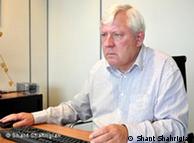Consider two small airports in the middle or Europe. At Maastricht Aachen Airport, business is booming thanks to an influx of German passengers who are fleeing a national aviation tax introduced on January 1, 2011. Meanwhile, just 80 kilometers across the border, Germany's Weeze Airport has been steadily losing customers.
A few years ago, things were exactly the opposite. The Netherlands had its own, yearlong experiment with an aviation tax, but revoked it in July 2009 after it saw Dutch hubs like Maastricht Aachen Airport lose passengers to rivals in neighboring countries, including Germany.
The levy cost Dutch airports, airlines, and related businesses between 1.2 and 1.3 million euros in lost revenue, according to a study by Amsterdam Aviation Economics, a research institute affiliated with the University of Amsterdam.
Hans van Mierlo, a professor of public finance at the University of Maastricht, said the abundance of transportation options in Europe means travelers can and will seek out alternatives whenever one country unilaterally imposes an air passenger tax.
"The [Dutch] crowd went to Germany; now the German crowd comes to us," he told Deutsche Welle. "I am surprised that the German government didn't learn from the Dutch failure."
 Maastricht-Aachen Airport may be small, but traffic is growing rapidlyHefty rates
Maastricht-Aachen Airport may be small, but traffic is growing rapidlyHefty rates
The German aviation tax runs at a rate of eight euros per one-way flight within Europe, 25 euros for medium-haul services to the Middle East and Sub-Saharan Africa, and 45 euros for long-haul flights. The tariff only applies to flights originating in Germany. The German Finance Ministry reported the duty raised 434 million euros in revenues in the first half of 2011.
However, for travelers, the tax can double the total cost of a bargain ticket. That has driven Irish budget carrier Ryanair to cancel some of its services from Weeze Airport and add flights at Maastricht. Meanwhile, rival airline Germanwings has launched a service linking Maastricht to Berlin 12 times per week.
Those moves helped drive Maastricht Aachen Airport's whopping 70 percent increase in passengers so far this year. That is quite a comeback from the time of the Dutch aviation tax, when it lost 25 percent of its customers.
 Maastricht's airport has new routes to Bucharest, Tenerife, and other spotsAmong the new clientele is Ne Pham from Jülich, Germany. She told Deutsche Welle that she used to fly out of Cologne or Dusseldorf to destinations like Italy, the United States and her native Vietnam.
Maastricht's airport has new routes to Bucharest, Tenerife, and other spotsAmong the new clientele is Ne Pham from Jülich, Germany. She told Deutsche Welle that she used to fly out of Cologne or Dusseldorf to destinations like Italy, the United States and her native Vietnam.
"It's cheaper to fly from [Maastricht] than from Germany," she said. "It's easy to find, has lots of parking spaces, and a very fast check-in. It's small but nice."
Maastricht makeover
To accommodate new passengers, Maastricht Aachen Airport has renovated its main waiting area and sole restaurant. A new bus line runs from Cologne directly to the Dutch airport, where travelers are greeted by a row of flags from seven European countries. Airport staff members are required to speak German and English in addition to Dutch, and a number of them speak French as well.
Marion Schramm and her husband, from Geilenkirchen, Germany, echoed Pham's reasons for choosing Maastricht Aachen Airport. But they were not as impressed by the small airport's recent makeover.
"It's obviously dinky," Marion Schramm told Deutsche Welle, "You see everything right away. But it's a lot cheaper than Germany at the moment."
 Customers have mixed reviews for the small Dutch airport's facilities
Customers have mixed reviews for the small Dutch airport's facilities
Weeze's woes
The German Airport Association, which represents German air hubs, has called for an immediate end to the national flight tax. It reported a tepid growth rate of 3.2 percent at airports throughout the country this July, compared with the same month last year.
Weeze Airport, near Dusseldorf, had 22.8 percent fewer customers in the same time period. Ludger van Bebber, the airport's managing director, said many of the hub's clients used to come from the Netherlands.
"The aviation tax destroys the level playing field for us," he told Deutsche Welle. "That is the main issue we have here at Weeze."
Meanwhile, Berlin's two hubs are seeing travelers hop across the border to nearby Polish airports. And people in Munich do not have to drive far to reach a number of alternative airports in Austria and the Czech Republic.
 The chairman of the Maastricht airport's board is planning for growth to continueDutch chairman confident
The chairman of the Maastricht airport's board is planning for growth to continueDutch chairman confident
While the German Finance Ministry has denied recent media reports that it might lower the aviation tax rates, the ministry is scheduled to evaluate the levy's effects on small and medium-sized airports in June 2012.
The chairman of Maastricht Aachen Airport, Jan Tindemans, said he is not worried about his business in the short term - even if Berlin ends up decreasing or revoking the tax.
He told Deutsche Welle that winning back market share in the wake of the Dutch tax experiment was very difficult. He does not expect things to be any easier for German hubs.
"No bakery wants its customers to go for one or two times to another bakery, because they always think [the customers] will stay there," he said. "There will be some people who will go back, but I don't think there will be much of an effect."
Tindemans said Maastricht Aachen Airport is seeking to add more airlines and destinations to its roster. He added that his airport could double annual traffic to almost one million passengers over the coming years if economic conditions remain stable.
 Ricky Martin is apparently keen to marry Carlos Gonzalez (Getty Images)
Ricky Martin is apparently keen to marry Carlos Gonzalez (Getty Images)












 Maastricht-Aachen Airport may be small, but traffic is growing rapidly
Maastricht-Aachen Airport may be small, but traffic is growing rapidly
 Customers have mixed reviews for the small Dutch airport's facilities
Customers have mixed reviews for the small Dutch airport's facilities
 Lawyers for a woman who alleges she was sexually assaulted by Prince Alwaleed bin Talal of Saudi Arabia say the case has not been properly handled by Spain's criminal justice system. The woman, known only as "Soraya", says she was assaulted on a yacht moored off the island of Ibiza in 2008. A spokeswoman for the prince denied the allegation and said he had not been to Ibiza for more than a decade. The case was shelved by an island court but has now been reopened. This followed a successful appeal by Soraya's lawyers. The judge is preparing a second official request to the Saudi authorities for assistance in formally questioning the prince. The nephew of Saudi King Abdullah, Prince Alwaleed bin Talal is a multi-billionaire with major investments in both Citigroup and NewsCorp. 'Something in my drink' "In our opinion, the Court of Instruction No 3 in Ibiza and the police did not follow full procedure in cases of alleged sexual abuse," the lawyers from Madrid-based firm Turiel and Beloqui told the BBC. "There are things that should have been investigated that were not - like questioning staff on the yacht and the guests, an analysis of the victim's clothes and so on," the lawyers wrote, describing the fact these steps were not taken as "very unusual". The claim that the case was not being pursued with proper rigour was dismissed by the Ibiza court in 2010, saying that the identity of the accused in no way affected its decision to drop the case that year. The court ruling cites insufficient evidence to proceed. Continue reading the main story “ Start Quote My daughter was in a terrible state, [...] scared to death, crying, awful” Mother of 'Soraya' Soraya, a Spanish-German model, was 20 at the time of the alleged attack on 13 August 2008 on board the 117-metre luxury yacht Turama. She told police she had begun to feel nauseous in the VIP zone of a local night club, where she believes something was slipped into her drink. She had been taken there by a man claiming to be a chauffeur for "an Arab prince" who was visiting the island. According to court documents seen by the BBC, Soraya sent the chauffeur an SMS text message at 05:12, saying: "I haven't drunk much but I think there was something in my drink." The model says she came round some hours later on board the Turama to find a man on top of her. She later identified the man as Prince Alwaleed bin Talal using images taken from YouTube. Forensic reports from a medical examination the following day revealed traces of a sedative and semen, but no physical injuries. A woman identifying herself as the mother of Soraya told the BBC her daughter had called on the morning of the alleged attack asking her to come and collect her from the island. "My daughter was in a terrible state, [...] scared to death, crying, awful," the woman said, responding to questions sent by email. "The Spanish justice system has treated this case very badly. In my view they did not want to get too involved because of who the accused was." A 2010 prosecutor's report says three men who were questioned by police during the investigation were unable to corroborate the model's version of events "in any way". The Saudi foreign ministry rejected an initial request from the Ibizan court to investigate, citing "an inability to identify the accused and a lack of solid evidence". This week, a spokeswoman for Prince Alwaleed's Kingdom Holding Company said the prince had never been informed of the 2008 court case, or that it was eventually shelved. In a statement, she also said the billionaire's travel records confirm he was with dozens of friends and family at the time of the alleged attack, nowhere near Ibiza. "There have been many examples of people impersonating Prince Alwaleed over the internet and elsewhere for their own purposes," Heba Fatani said in a statement. She called the allegations against him "salacious" and "completely and utterly false". The Audencia Provincial court in Mallorca - which has jurisdiction over Ibiza - has ordered the case to be reopened in order to ensure the prince can be questioned in accordance with Spanish law. Soraya's lawyers have urged him to provide a DNA sample to rule himself out of the inquiry.
Lawyers for a woman who alleges she was sexually assaulted by Prince Alwaleed bin Talal of Saudi Arabia say the case has not been properly handled by Spain's criminal justice system. The woman, known only as "Soraya", says she was assaulted on a yacht moored off the island of Ibiza in 2008. A spokeswoman for the prince denied the allegation and said he had not been to Ibiza for more than a decade. The case was shelved by an island court but has now been reopened. This followed a successful appeal by Soraya's lawyers. The judge is preparing a second official request to the Saudi authorities for assistance in formally questioning the prince. The nephew of Saudi King Abdullah, Prince Alwaleed bin Talal is a multi-billionaire with major investments in both Citigroup and NewsCorp. 'Something in my drink' "In our opinion, the Court of Instruction No 3 in Ibiza and the police did not follow full procedure in cases of alleged sexual abuse," the lawyers from Madrid-based firm Turiel and Beloqui told the BBC. "There are things that should have been investigated that were not - like questioning staff on the yacht and the guests, an analysis of the victim's clothes and so on," the lawyers wrote, describing the fact these steps were not taken as "very unusual". The claim that the case was not being pursued with proper rigour was dismissed by the Ibiza court in 2010, saying that the identity of the accused in no way affected its decision to drop the case that year. The court ruling cites insufficient evidence to proceed. Continue reading the main story “ Start Quote My daughter was in a terrible state, [...] scared to death, crying, awful” Mother of 'Soraya' Soraya, a Spanish-German model, was 20 at the time of the alleged attack on 13 August 2008 on board the 117-metre luxury yacht Turama. She told police she had begun to feel nauseous in the VIP zone of a local night club, where she believes something was slipped into her drink. She had been taken there by a man claiming to be a chauffeur for "an Arab prince" who was visiting the island. According to court documents seen by the BBC, Soraya sent the chauffeur an SMS text message at 05:12, saying: "I haven't drunk much but I think there was something in my drink." The model says she came round some hours later on board the Turama to find a man on top of her. She later identified the man as Prince Alwaleed bin Talal using images taken from YouTube. Forensic reports from a medical examination the following day revealed traces of a sedative and semen, but no physical injuries. A woman identifying herself as the mother of Soraya told the BBC her daughter had called on the morning of the alleged attack asking her to come and collect her from the island. "My daughter was in a terrible state, [...] scared to death, crying, awful," the woman said, responding to questions sent by email. "The Spanish justice system has treated this case very badly. In my view they did not want to get too involved because of who the accused was." A 2010 prosecutor's report says three men who were questioned by police during the investigation were unable to corroborate the model's version of events "in any way". The Saudi foreign ministry rejected an initial request from the Ibizan court to investigate, citing "an inability to identify the accused and a lack of solid evidence". This week, a spokeswoman for Prince Alwaleed's Kingdom Holding Company said the prince had never been informed of the 2008 court case, or that it was eventually shelved. In a statement, she also said the billionaire's travel records confirm he was with dozens of friends and family at the time of the alleged attack, nowhere near Ibiza. "There have been many examples of people impersonating Prince Alwaleed over the internet and elsewhere for their own purposes," Heba Fatani said in a statement. She called the allegations against him "salacious" and "completely and utterly false". The Audencia Provincial court in Mallorca - which has jurisdiction over Ibiza - has ordered the case to be reopened in order to ensure the prince can be questioned in accordance with Spanish law. Soraya's lawyers have urged him to provide a DNA sample to rule himself out of the inquiry. Spain today became the latest European country to hike taxes on the wealthy, with a new asset-based tax targeting the country's richest people. Spain's socialist government hopes that the new wealth tax will raise up to €1bn in a country where growth is grinding to a halt and this year's 6% deficit target looks increasingly tough to meet. The move represents a U-turn for prime minister José Luis Rodríguez Zapatero, who abolished a similar wealth tax in 2008 — just before the country plunged towards recession. "The economic crisis makes it necessary to bring this tax back, applying principles of fairness so that those with bigger assets can be taxed and so those who have greater wealth can contribute more to getting the country out of the crisis," a finance ministry statement said. Spaniards with €700,000 of assets in real estate – excluding their main home – as well as in stocks and bank deposit will have to pay the new tax. "It excludes the middle classes, who were the ones who had been largely affected by it when it was eliminated in 2008," the statement said. "We estimate the number of people who will contribute at around 160,000, with annual payments of about €1.08bn if it is applied evenly across Spain," it added. The wealth tax will go to Spain's cash-strapped regional governments, though some of them are opposed to it. Only one of the eleven regions currently governed by the right-wing opposition People's Party (PP) has so far indicated that it will apply the tax. It remained unclear how many others, including the wealthy Madrid region, would join the PP-administered region of Extremadura. But with fierce austerity measures in place, PP regional governments will come under intense pressure to use the tax. "In moments of hardship it is fair that those who have more should give more, just as some of the wealthiest people in Germany and France have offered to do, especially as they are less affected by measures that have been applied to pensions, salaries, lay-offs and income tax or VAT hikes," said José María Mollinedo, head of the tax inspectors' union. Spain's wealthy largely avoid income tax, with only some 7,000 people declaring annual taxable income above €600,000. Emilio Botín, head of the Santander banking group and Spain's tenth wealthiest individual, said that he disagreed with the move. "I think it's bad," he told journalists
Spain today became the latest European country to hike taxes on the wealthy, with a new asset-based tax targeting the country's richest people. Spain's socialist government hopes that the new wealth tax will raise up to €1bn in a country where growth is grinding to a halt and this year's 6% deficit target looks increasingly tough to meet. The move represents a U-turn for prime minister José Luis Rodríguez Zapatero, who abolished a similar wealth tax in 2008 — just before the country plunged towards recession. "The economic crisis makes it necessary to bring this tax back, applying principles of fairness so that those with bigger assets can be taxed and so those who have greater wealth can contribute more to getting the country out of the crisis," a finance ministry statement said. Spaniards with €700,000 of assets in real estate – excluding their main home – as well as in stocks and bank deposit will have to pay the new tax. "It excludes the middle classes, who were the ones who had been largely affected by it when it was eliminated in 2008," the statement said. "We estimate the number of people who will contribute at around 160,000, with annual payments of about €1.08bn if it is applied evenly across Spain," it added. The wealth tax will go to Spain's cash-strapped regional governments, though some of them are opposed to it. Only one of the eleven regions currently governed by the right-wing opposition People's Party (PP) has so far indicated that it will apply the tax. It remained unclear how many others, including the wealthy Madrid region, would join the PP-administered region of Extremadura. But with fierce austerity measures in place, PP regional governments will come under intense pressure to use the tax. "In moments of hardship it is fair that those who have more should give more, just as some of the wealthiest people in Germany and France have offered to do, especially as they are less affected by measures that have been applied to pensions, salaries, lay-offs and income tax or VAT hikes," said José María Mollinedo, head of the tax inspectors' union. Spain's wealthy largely avoid income tax, with only some 7,000 people declaring annual taxable income above €600,000. Emilio Botín, head of the Santander banking group and Spain's tenth wealthiest individual, said that he disagreed with the move. "I think it's bad," he told journalists






